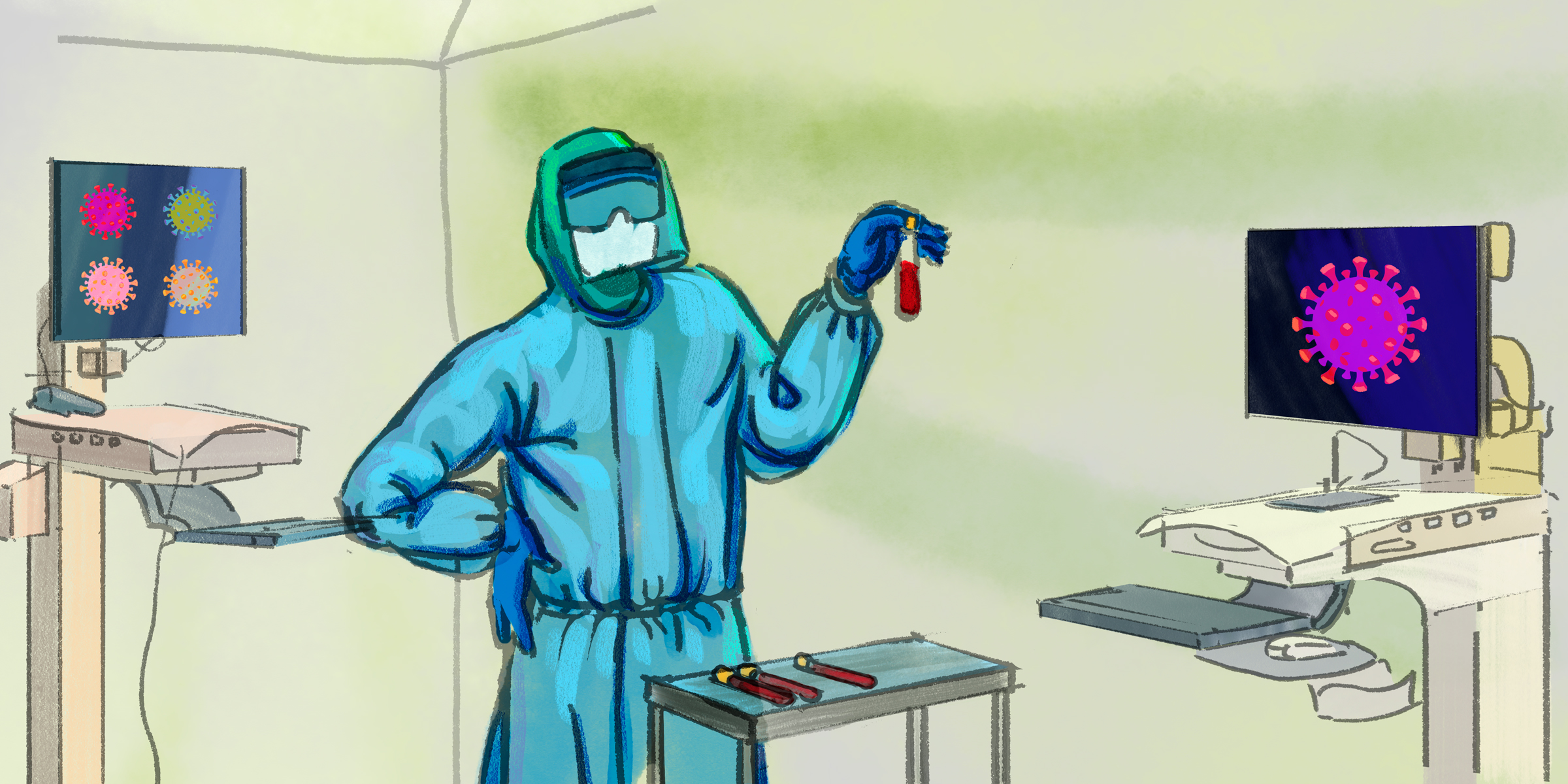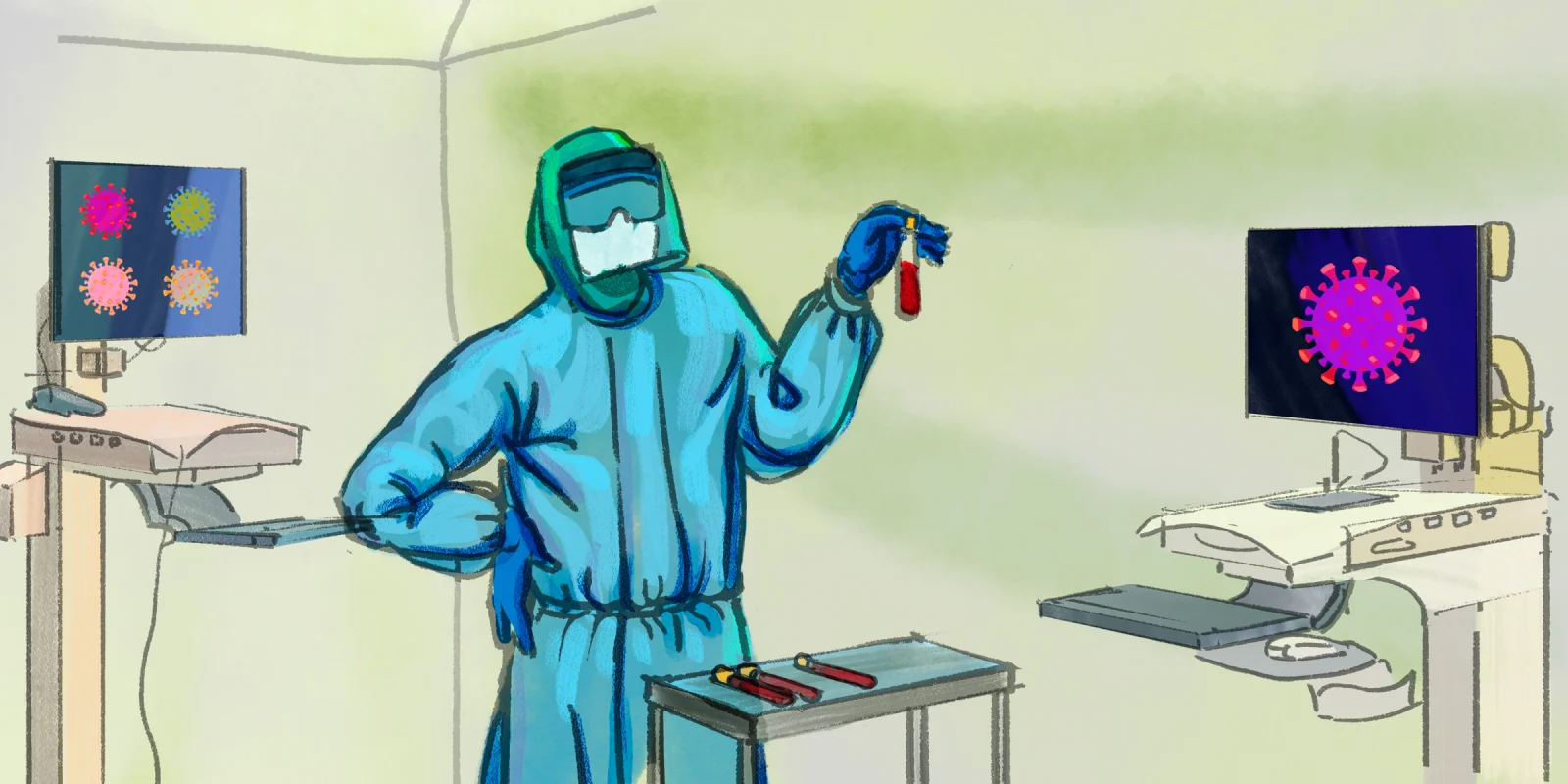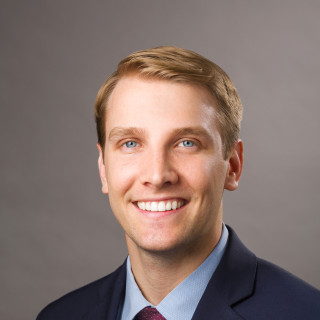 I am surrounded by monitors and ventilators, chirping like cardinals in the summer. My face shield whistles as it brushes against my bright yellow gown. My breath feels warm as it reverberates within my N95 mask. Despite being beneath these protective barriers, I’m fully able to look left, right, and straight ahead with clear, unobstructed vision. A second-year infectious disease fellow, I tread down the hospital corridors among a sea of COVID-19 patients knowing this is exactly where I need to be.
I am surrounded by monitors and ventilators, chirping like cardinals in the summer. My face shield whistles as it brushes against my bright yellow gown. My breath feels warm as it reverberates within my N95 mask. Despite being beneath these protective barriers, I’m fully able to look left, right, and straight ahead with clear, unobstructed vision. A second-year infectious disease fellow, I tread down the hospital corridors among a sea of COVID-19 patients knowing this is exactly where I need to be.
In April 2019, I wrote an article to medical students and residents considering their career options. I presented one reason to consider pursuing a specialty in infectious disease — that it is a global calling, one of the only fields where a threat to almost anyone else’s well-being is also a threat to your own well-being. In contrast to the implausibility of myocardial infarction threatening the existence of humanity, infectious diseases have the potential to cause a real “end of the world” scenario. And it is infectious disease specialists who are at the forefront, ready to defend against these ongoing threats.
And then COVID-19 happened.
With more than 5 million infected by COVID-19 in the U.S. as of August, the pandemic has illuminated the cracks in the American health care system and public health. As the virus continues to sweep the nation, shortages rage on. The public has had to learn a hard lesson in basic economics — the concept of scarcity of resources. The demand for tests, swabs, PPE, ventilators, and medications continues to exceed the limited supply.
However, there is one resource that is becoming so scarce that it could be classified as “endangered” within the medical ecosystem: infectious disease specialists. A recent study in the Annals of Internal Medicine claimed that of the total 3,142 counties in the U.S., 79.5% did not have a single infectious disease physician, some of which have been the hardest impacted by COVID-19. In other words, about 208 million Americans are living in counties with no or very few infectious disease doctors.
The pandemic made the importance of infectious disease specialists crystal clear. With leadership roles in public health, infectious disease specialists impact health beyond the bounds of individual patients for whom they provide care. The world needs truth tellers; it is desperate and hungry for reliable information. When I turn on the news, I see infectious disease leaders like Drs. Anthony Fauci and Carlos Del Rio providing some of that information. After all, infectious disease training provides critical skills for public health work in health systems, state and local health departments, as well as national institutions like the CDC and NIH.
Infectious disease physicians, scientists, and faculty are leading vaccine development efforts, creating clinical trials of novel treatment regimens, researching policy implementation and advocacy, and working on infection prevention and antimicrobial stewardship, all while caring for COVID-19 patients. I have actually seen an infectious disease faculty member enthusiastically work on all of these things in a single day — an unparalleled level of career diversity.
Within our health care system, infectious disease physicians have tangible benefits: consultation often results in shorter stays, lower costs, and lower mortality. At academic hospitals, infectious disease physicians comprise crucial teaching faculty, leading the next generation of young physicians.
Despite being one of the most frequently consulted services in most hospitals, the number of new infectious diseases physicians is not keeping up with the need for them. According to the 2019 NRMP statistics report for physician fellowship matches, nearly 21% of 406 available infectious disease trainee positions in the U.S. went unfilled, compared with 0.2% of 1,010 cardiovascular disease positions and 0.3% of 615 oncology positions. There needs to be a focused and systematic attempt to train more infectious disease physicians, if we are to protect our society’s future.
With increasing global travel, antibiotic-resistant organisms, and continued emergence of new and old infectious diseases, the role of infectious disease physicians in society will only increase. Now more than ever, the world needs more infectious disease doctors. When COVID-19 is conquered, a new threat will emerge. Will you step up and be amongst those ready to fight it?
Jesse O’Shea is a second year infectious disease fellow at Emory University.
Illustration by Jennifer Bogartz.
Click here to see more perspectives on COVID-19 from the Doximity network.
Click here for up-to-date news about COVID-19 on Doximity.







